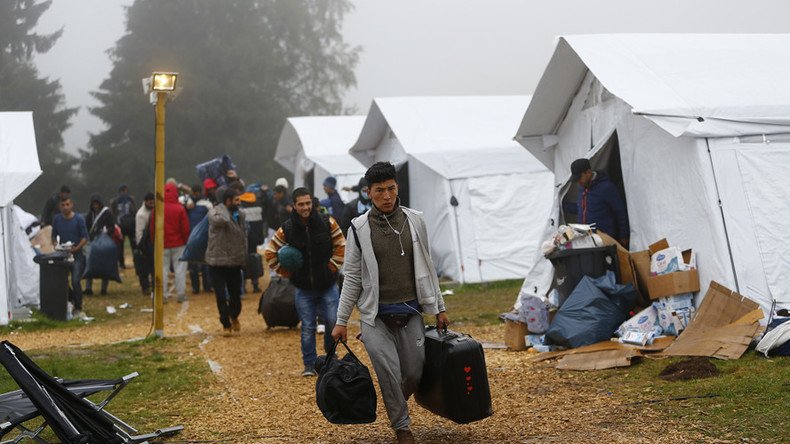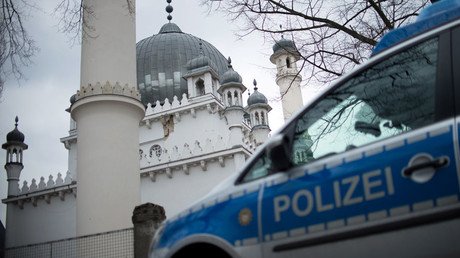Up in smoke: 45 arson attacks carried out on refugee centers in Germany in 2016

German police have recorded 45 cases of arson at refugee centers across the country since the start of 2016. The majority of attacks were carried out by locals living near the centers.
Holger Munch, president of the German Federal Criminal Police Office (BKA), revealed the alarming statistics.
"This year there have already been 45 arson cases at refugee centers," Munch said in an interview with the Funke media group.
Police found that people living near the refugee camps carried out 80 percent of the attacks. However, in April, a Syrian refugee admitted to setting fire to a German shelter where he was staying. He also spray-painted swastikas on the walls to make it look like a political crime.
The asylum seeker said the arson attack in the town of Bingen was in response to poor conditions at the shelter. He wanted to make it look like it had been started by far-right protesters.
Syrian refugee admits setting shelter on fire, spray-painting swastikas to frame far-right https://t.co/cim3mTfCMdpic.twitter.com/EWFhwLt6tJ
— RT (@RT_com) April 12, 2016
"During police questioning, the man admitted that he had set [a] fire in the cellar of the multi-use building," police spokesman Achim Hansen told NBC News, adding that the refugee had also said he “had a lack of hope for the future."
There were over 800 attacks on refugee shelters in 2015, according to Germany's Criminal Police Office. Those numbers represented a four-fold increase from 2014, when there were 199 cases.
In February, a planned refugee center in Bautzen, Saxony, erupted in flames as onlookers cheered and tried to prevent firefighters from extinguishing the blaze. Later that month, another Saxony building slated to host asylum seekers was hit with multiple gunshots, after previously being flooded and stoned.
The German government will allocate nearly €94 billion for incoming refugees over the next five years. The money will be used for housing, integration, German language courses and social welfare benefits, as well as dealing with the underlying causes of the refugee influx.
The Federal Finance Ministry states that it expects around 600,000 refugees to enter Germany in 2016, some 400,000 in 2017 and about 300,000 each consecutive year. In 2015, an estimated 1.1 million arrived in Germany seeking asylum.
A study carried out in April by the Mannheim Center for European Economic Research (ZEW), suggested the financial impact of the refugee crisis on the German economy could be €398 billion.
However, anger at Chancellor Angela Merkel’s pro-refugee policies is growing. A recent poll by the INSA institute for Cicero magazine showed that almost two thirds of those asked do not want Merkel to stay in office after the next elections.
“Chancellor Merkel is being heavily criticized in our country because she has a certain rescue policy method, which is not accepted in this country because the Germans were never asked about this policy,” Frank-Christian Hansel, from Alternative for Germany party, told RT.
“They were indirectly asked by the last elections we’ve had this year and the Christian Democrats and their partner, the Social Democrats, are losing points. It is clear that this policy cannot continue within the German foreign and also European policy,” he added.
A similar figure, around 60 percent, also believe that there is no place for Islam in Germany, following a poll conducted by the Bild newspaper and INSA.
In January 2015, 37 percent of people said Islam had a place in Germany, but the figure in the latest poll dropped by 15 percentage points to just 22 percent. Almost half the Germans asked in the poll are worried their country could be taken over by proponents of radical Islam.













